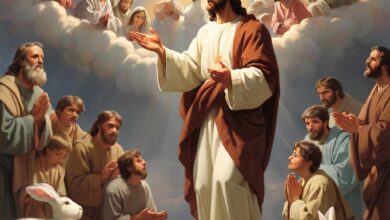Reflection

Fifth Sunday of Lent – Year A
Readings: Ez. 37:12-14, Rom. 8:8-11, Jn 11:1-45
Theme: Jesus, True Life For The Believer
Today is the 5th Sunday of Lent, and the last but one week of Lent. This will be followed by ‘Passion Sunday,’ (Palm Sunday) and finally ‘the Holy Week’ that will reach its peak on ‘Easter Sunday.’ For the past three weeks, we have been encountering some indispensable phenomena in our Sunday readings.
Last two weeks, it was about water, last week it was about light and this week the focus is on life. If water and light are indispensable for life, then without life we have lifelessness and there will be nothing to talk about! Life is of utmost value and a lot of premium is attached to life.
The central theme of today’s Scripture Readings is the resurrection and the life. The three readings of today fit beautifully together as they tell us of death yielding to a new way of life. Life and death; hope and despair are the key phrases that sum up the message of this Sunday.
The Prophet Ezekiel in the First Reading, urges the exiled Israelite people in Babylon to look beyond the siege and destruction of Jerusalem to a new future, when God’s Spirit will restore their nation. God promises them a new life and they will be filled with the Spirit of God. The Prophet Ezekiel offers hope for them who believe in the God of life.
St. Paul in the Second Reading reminds the Roman Christians the power of God´s Spirit that will give life to their mortal bodies. He implies that this new life is not something that will start only on the last day, but is taking effect in their lives now. For this reason, he encourages them to live now, according to the Spirit.
In today’s Gospel, one sees how Jesus is life and gives life even in situation where everybody thinks that death has triumphed. He brings his friend, Lazarus, back to life after having been buried for four days. The story of the raising of Lazarus from the dead, to bring him back to life, symbolizes that “Jesus Himself is the resurrection and the life.”
This miracle leads us to believe in resurrection and new life which exists in Jesus through the Holy Spirit. Jesus confirms that He is Life and that to believe in Him is to live a new life. This last sign Jesus does in the Gospel of John will lead to an intensification of the opposition and the decision to kill him. The raising of Lazarus is a first sign of the reality which his resurrection after his own death will reveal fully.
At the heart of today’s Gospel is the statement of Jesus to Martha: “ I am the resurrection and the life, the one who believes in me, even if he dies will live and whoever believes in me will never die” (Jn 11:25-26). Jesus invites Martha to believe this and she confesses Jesus is “the Christ, the Son of God, the one who comes into the world” (Jn 11:27).
The statement of Jesus and that of Martha reflect the faith journey of the community of disciples of Jesus many years after His resurrection. The resurrection of Jesus had helped them to understand better the implications of their faith in Him.
By raising Lazarus to life, Jesus shows that he is master even of death and can give to those who follow him a way of life that is more powerful than death. Death takes many forms. Many people experience situations of violence, exploitation, humiliation, rejection or discrimination, things that are not very different from physical death.
People who reject God and pursue only selfish interests live a form of spiritual death. Catechumen and the baptized in their journey together towards Easter are called upon to look for ways of overcoming such situations.
One remarkable thing in the episode of the Gospel is that we never hear Lazarus’ voice. We hear a lot from his two sisters, Martha and Mary. Lazarus himself does nothing as he passes from death to life. He has simply to obey the word of Jesus and come out of the tomb (Jn 11:43). He benefits from what Jesus does, but does not initiate it. In John’s Gospel, we see many examples of people who obeyed Jesus and then benefited from it, either of themselves or others.
Water was changed into wine at Cana, because the mother of Jesus trusted that obedience of the servants to the words of her Son could make the impossible happen (Jn 2:5-10). The royal officer’s faith in and obedience to Jesus cured his son (Jn 4:50-53). The crippled man at the pool of Bethsaida regained his health after thirty-eight years, when he obeyed Jesus’ command (Jn 5:8-9). The man born blind could recover his physical sight because of his obedience to Jesus’ words to go and wash in the pool of Siloam (Jn 9:7).
This is a lesson the Catechumens who are preparing for Baptism and indeed all Christians have to learn. Obedience to Jesus’ words makes possible what we thought as impossible. Obedience to His words helps us to participate in the life He wants to share with us. The word of God can lead us to new life only when we welcome it in faith and allow it to change us.
Even when all seems lost, a new beginning is always possible with Jesus. Lent is nearing its end. God still calls us to change. Let us therefore bring our deepest fears and deadly darkness to God. God’s power combined with our own Lenten sacrifices can transform the waters of chaos in our life into the wonders of creation and we will realize that, indeed, in Jesus, there is a new life for us believers. Amen.

